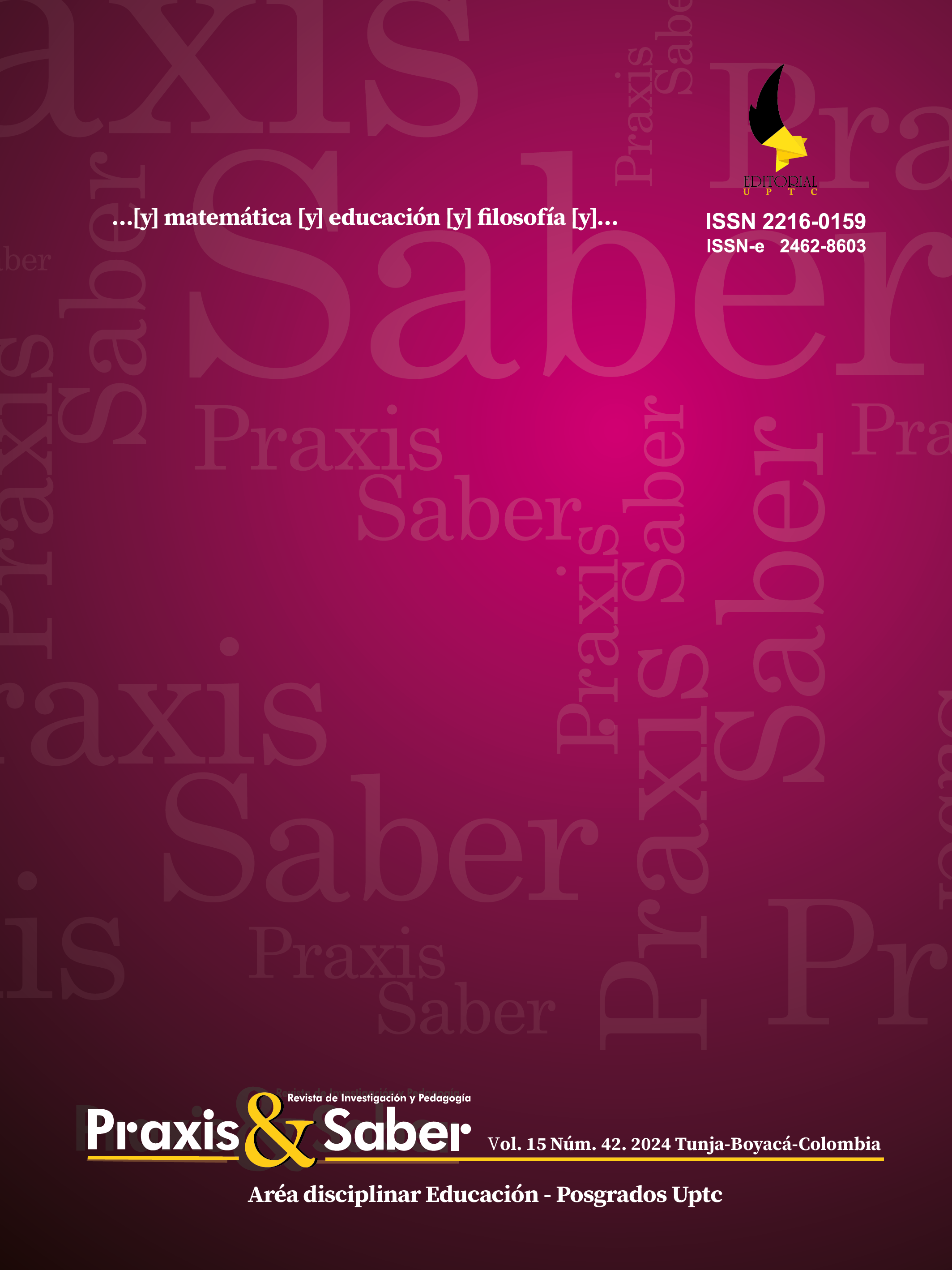From a Cartographic Labyrinth, Lives Transformed by Mathematics and Art

Abstract
From carrying out an investigation with mathematics, art and philosophy, time passes to revisit scenes from workshops experienced with children in the fifth year of Elementary School, at the Colégio de Aplicação, at the Federal University of Santa Catarina. In this article, we engage in other problematizations that, previously virtual, are now updated, forcing us to think about mathematical education with art and philosophy. To do this, considering a set of four workshops or four spaces for thought, with geometric abstract art, we talk about marthematics, we confabulate with the word abstract, and we problematize body and affection in the invention of learning and experimentation of knowledge. Furthermore, an exercise is evoked in producing fragments of visibility for what was being produced with art and mathematics to teach. With this, we write these lines stretching our thoughts on relationships in the classroom, with children, with the abstract, with the sensitive and visuality, in order to perceive ourselves as beings that transform, transform, in and through life.
Keywords
philosophy of difference, visuality, abstract, virtuality, subjectivation processes
References
- César J. M., Silva, F. H. & Bicalho, P. P. G. (2013). O lugar do quantitativo na pesquisa cartográfica. Fractal, 25(2), 357-372. https://doi.org/10.1590/S1984-02922013000200009
- Corazza, S. C. (2007). Labirintos da pesquisa, diante de ferrolhos. In Costa, M. V. (Org). Caminhos investigativos I: novos olhares na pesquisa em educação. (3ª ed. pp. 103-127). Lamparina Editora.
- Deleuze, G. (2006). Proust e os signos (2ª ed.). Forense Universitária.
- Deleuze, G. & Guattari, F. (1992). O que é a filosofia?. Editora 34.
- Deleuze, G. & Guattari, F. (1996). Mil Platôs: Capitalismo e Esquizofrenia (vol. 3). Editora 34.
- Deleuze, G. & Parnet, C. (1998). Diálogos. Escuta.
- Flores, C. R. (2007). Olhar, Saber e Representar: sobre a representação em perspectiva. Musa.
- Flores, C. R. & Kerscher-Franco, M. M. (2022). Geometria na arte? Cenas de uma colonização do olhar e do pensar em Educação Matemática. ACTA Scientiae, 24(8), 42-68. https://doi.org/10.17648/acta.scientiae.7144
- Foucault, M. (2000). Michel Foucault explica seu último livro. In Motta, M. B. (Org.). Michel
- Foucault. Arqueologia das Ciências e História dos Sistemas de Pensamento. (pp. 145-152). Forense Universitária.
- Foucault, M. (2013). A verdade e as formas jurídicas. Rio de Janeiro: Nau.
- Foucault, M. (2019). História da sexualidade: o uso dos prazeres (vol. 2, 6ª ed.). Paz e Terra.
- Foucault, M. (1987). A arqueologia do saber (3ª ed.). Forense-Universitária.
- Gooding, M. (2002). Arte abstrata. Cosac & Naify.
- Kastrup, V. & Passos, E. (2013). Cartografar é traçar um plano comum. Fractal, 25(2). 263-280. https://doi.org/10.1590/S1984-02922013000200004
- Kerscher, M. M. (2018). Uma martemática que per-corre com crianças em uma experiência abstrata num espaço-escola-espaço. [Dissertação de Mestrado, Universidade Federal de Santa Catarina]. Repositório Institucional da UFSC. https://repositorio.ufsc.br/handle/123456789/191266
- Kerscher, M. M. & Flores, C. R. (2019). Ecos Abstratos ) ) ) ) Experiências sensibilizadas com matemática e com arte. REVEMAT, 14(1), 1-13. https://doi.org/10.5007/1981-1322.2019.e61848
- Kerscher, M. M. & Flores, C. R. (2020). Matemática e arte à luz [e à noite] de Gaston Bachelard: processos criativos na educação. REVEMAT, 15(1), 01-19. https://doi.org/10.5007/1981-1322.2020.e72622
- Kerscher-Franco, M. M. & Flores, C. R. (2022). O caso de uma matemática que fala do corpo que se olha. Ou, o corpo que se olha com a arte e fala de matemática. Perspectivas da Educação Matemática,15(38), 1-19. https://doi.org/10.46312/pem.v15i38.14535
- Lispector, C. (1999). Um sopro de vida. Rocco.
- Ludvig, I. C., Flores, C. R. & Wagner, D. R. (2023). No cultivo de uma oficina com arte contemporânea indígena, a soberania de um saber da Matemática na escola. Rede Amazônica de Educação em Ciências e Matemática. 11(1), Artigo e23070. https://doi.org/10.26571/reamec.v11i1.16491
- Masschelein, J. (2012). Inciting an attentive experimental ethos and creating a laboratory setting. Philosophy of education and the transformation of educational institutions. Zeitschrift für Pädagogik, 354-370.
- Masschelein, J. & Simons, M. (2015). Em defesa da escola: uma questão pública. (2ª ed.). Autêntica Editora.
- Rancière, J. (2009). A partilha do sensível: Estética e política. Editora 34.
- Roque, T. (2012). História da Matemática – Uma visão crítica, desfazendo mitos e lendas. Jorge Zahar.
- Silva, J. J. (2007). Filosofias da matemática. Editora UNESP.
- Simons, M. & Masschelein, J. (2011). Sociedade da aprendizagem e governamentalidade: uma introdução. Currículo sem fronteiras, 11(1), 121-136
